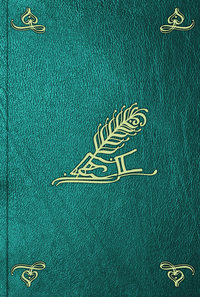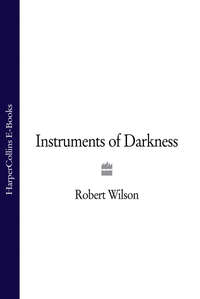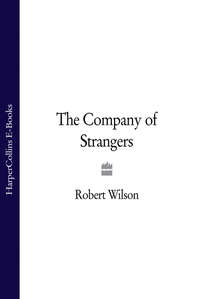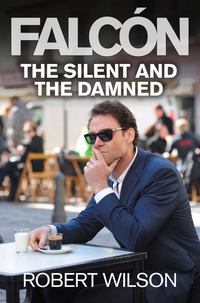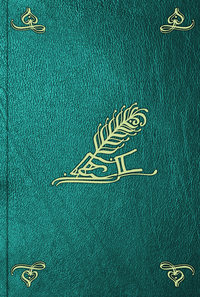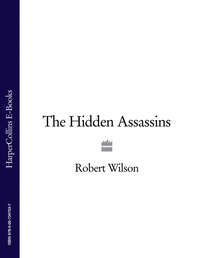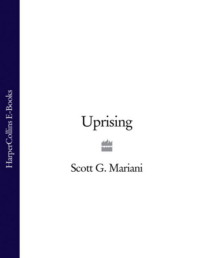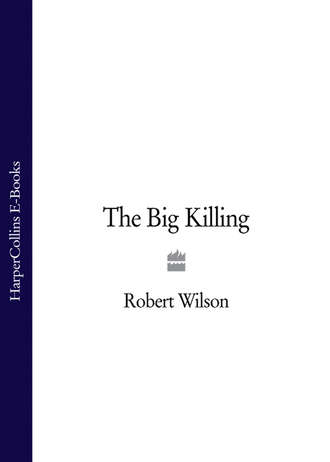
Полная версия
The Big Killing
Martin said he’d have the expense account open in five minutes. We guffed around a bit more, I asked about Anne, and we hung up.
The door from the passageway opened, the handle hitting the wall hard, and the robed-up African moved through the lobby on the end of a typhoon. The girl came down the passageway doing up her wrap and looking frightened. The madame had come off her elbows on the end of the desk and was standing with her fists balled into where her waist probably was. She said something in her own language which woke the older prostitute, who recognized the tone. The three of them set to it.
I phoned the Novotel from the middle of the cat fight and booked a car for that afternoon. Then I realized what all the broken furniture was about. The madame reached into the pile and brought out a piece of board and gave the girl three hefty whacks on the bottom before I dropped the phone and took the board out of her hand. She turned on me with something in her eyes which I would have preferred to have been murder and I threatened her with the board.
‘You pay for girl!’ she shouted in French.
‘I don’t want the girl.’
‘He want the girl’ – she pointed out of the door – ‘but he drink too much, he see the goods, he try but he no pay. You pay.’
‘Why hit the girl?’
She blinked a few times at that because she wasn’t sure why she was hitting the girl. ‘You want to go hit him for me?’
I left money on the counter, which she rushed at, and got out of there leaving the madame pelting the older prostitute with drawbacks of the trade while the girl dropped on her haunches in the corner and cried.
Chapter 4
It was 2.30 p.m. by the time I joined the Grand Bassam/Abidjan highway and drove past the handicraft shops, who could sell you a pot for more than you’d pay in Sèvres, and traditional healers, who could put a spell on a troublesome mother-in-law in Tashkent. It was a pleasant drive along the palm-treed coastline, past a seamless bidonville of stalls selling tat, bars, and hotels specializing in rooms by the hour. I skirted the end of the airport runway and high up above the departures hall was a team of vultures, their fingers spread at the end of their wings, circling in the thermals, grumbling at the low incidence of pilot error since computers came in.
After the airport the two-lane Grand Bassam road joined a fourteen-lane highway into downtown Abidjan. I drove through the suburbs of Koumassi and Marcory with the Manhattan-style skyline of the financial district called Plateau in front of me. You could forget you were in Africa if you concentrated on the skyscrapers but at Treichville I broke right and the buzz and hot stink of life in the African Abidjan brought me home. I crossed the lagoon, that separated the two continents, over the Pont Général de Gaulle.
Life hadn’t been so good in Abidjan recently. Before it was no different to being in any modern city; built around the lagoon the cityscape looked like Sydney and the facilities were much the same. Everything had been accessible on a well-larded expatriate salary and after work the residential districts of Cocody and Deux Plateaux were splashed with gold and silver lame and rang with crystal laughter. On the other side of those well-clipped hedges the locals were beginning to hit the ground with sticks while they listened to the President’s fading charisma. Then the power workers went on strike. Now there was no guarantee of getting ice in a whisky and cool air to sleep in.
The Ivorians, like all the people along this coast, wanted to run their own country with a bit of democracy. Now that the money had run out, the price of coffee and cocoa had dropped and the value of pineapples foundered, people had taken to thinking they could do no worse than have a crack at it themselves. The army had sensed a mood and had staged a rebellion and the air force had followed. In the confusion a lot of shops were emptied by people with no credit facilities but strong arms and big appetites.
Order was re-established after a few pay rises were promised but not with the same respect for the law as before. Care had to be taken on the streets. There were a lot of fast young men who weren’t above a little violence to get a handbag or a gold chain. People ran from their cars to the office and didn’t bother to go out for a meal or try to see a film which might not make it to the last reel. Restaurants closed, businesses folded. Everybody stayed in and sweated by candlelight and drank very warm Beaujolais and thought about Geneva and other places of perfect order.
I parked my car in the Novotel basement, picked up the hired Peugeot that blended in with all the other Peugeots that were the only cars in Ivory Coast unless you had a ministerial Mercedes or a bandit’s BMW. I worked my way north up to the Banco National Park passing the fanicos, a bunch of immigrant workers who stood in thigh-deep water all day washing clothes by pounding them against rocks in the river, and headed west towards the coastal town of Grand Lahou. They were few cars out in the susurrating heat, which meant that I didn’t have to eat someone else’s dust, picking grit out of my eyes on the graded road.
The drop point was in a pineapple plantation. Tracks had been cut through the fields for harvesting and one of these led down to a landing stage on the Ebrié lagoon, the body of water which stretched west from Abidjan about sixty miles. I decided to take Fat Paul’s advice and check it out beforehand and then drink beer in Tiegba until time came for the drop at 8.30.
I found a left turn with the orange arrow that George had told me about and took the dirt track between the acres of tilled grey earth with a foot-high pineapple every metre whichever way you looked. Three kilometres later the track dropped down steeply through thick vegetation to a large clearing of beaten and sunbaked earth from which a wooden jetty took off out into the lagoon.
It was no cooler down by the water. There was no fresh breeze coming off it, just more humidity and insects. Out on the jetty, down between the warped and loosening slats of the walkway, the water had hardly the energy to slop around the wooden support struts. Through the haze I could just see the opposite bank of the lagoon. The sun, still high even though there was only another hour and a half’s light in it, punished the scene and the sweat dripped off my eyebrows. I turned back and something flashed in the corner of my eye from high up in the vegetation on the bank. I ambled back towards the car, casting about like a retired colonel with no troops to inspect, and a fish came up for a fly, leaving concentric ripples. Another flash – high up to my right and I got a fix on it this time.
Looking back from the jetty I could see another track dropped down at the far end of the clearing from where I’d parked. I stepped off the uncertain planking and picked up a stone and sent it on a blasé skim across the water. After a minute’s fevered nonchalance I got back in the car and drove fast across the hard earth and up the other track. I broke through the vegetation and out on to the plateau of the pineapple plantation in time to see a whipped-up funnel of dust which hung well and long in the torpid air, making a screen of ash-grey voile through which the car, pulling away, was invisible.
The terrain curved so that I couldn’t see the main road to Abidjan and I had to drive a fast and dusty kilometre to find out that whoever had been watching me was in a large dark saloon. The car, off to the right now where the track joined the main road, slowed into a gully, then kicked up on to the graded road and was engulfed in its own dust for a moment before finding a lower gear and heading east, back to the city.
I followed with the windows shut and the dust still finding its way into the car, mixed with the sweat streaming off my face and down my neck. I reached the gully and stopped. The car was too far ahead, and if I’d taken the gully at speed it would have put a kink in the chassis which might have been noticed. I sat back and watched the dust settle in a film over the dashboard and bonnet. A minibus passed from right to left driven by an African with white people in the back holding on to their seats. They were all wearing hats, which meant they were tourists, and they were hunched, grim and tense from a rough ride.
I should have turned right, driven back to the city, gone straight through Abidjan and out to Grand Bassam. I should have found Fat Paul sitting in some broken-down colonial house and given him his package along with some suggestions as to where, on his unchartered anatomy, he could stick it. I let the tourist bus get ahead and then turned left, following it at a distance down to the lagoon village of Tiegba.
Why did I do that, when the first of those snags I’d been on at Fat Paul about had just left a big rent in the threadbare fabric of my inner calm? Why, when Martin Fall was going to start paying me £300 a day plus expenses, did I carry on with a job that stank of disaster? Maybe my sense of honour needed a long stretch in a rehab centre to get itself realigned to cope with a modern world. Or was I just persuading myself that I was all confused with old-fashioned values handed down by well-meaning parents who would never understand the game.
I drove through the purpling afternoon and ran a film clip through my head which was clear as the day it had happened, twenty-two years ago. My father dying in a London hospital. The iron-grey light of a slate-cold, viral January – the month that saw off the parchment-skinned pensioners and people like my father with weak hearts and lungs black, clogged and bleeding from four decades of Woodbines and Capstans. His fingernails were blue, his grey and phlegmy eyes were frightened on either side of the black rubber oxygen mask which covered his dark lips. His hand dragged at the tube of the mask to pull it off and get it over with. The nurse chided him. He beckoned me over. I pulled the mask off a crack and heard the oxygen and then his voice like a radio on the other side of a windy railway track. ‘Never do anything for the money,’ he said to my sixteen-year-old innocence, ‘and if you say you’re going to do something, do it.’ Those were the last words of a London contract electrician; he survived the night but didn’t make it to mid-morning tea.
I’d taken this job for the money, so I’d failed him once. Now that I was following through with something I’d started would the old man be nodding his approval? I doubted it. I had an attitude problem, brought on by being alone too much, brought on by spending too much of my time with a bottle for company. One thing I did know was that I wasn’t confused. The truth was, I wanted to see if I could get away with it – tempt fate and still beat it. Maybe Heike was right to stay away from me.
No other cars passed on the other side of the road before I dropped down to the landing stage for the boats across to the stilted village of Tiegba. It was 5.30 p.m. by the time I parked up by the bar where the sound of elderly, annoyed Americans filled the air like frogs sending invitations after dark. Some of them were getting into low flat boats, filming their feet with video cameras while they did it. Most of the rest were climbing up the wooden stairs to the bar.
I asked the driver if he’d seen the last car to pass him on the road. He looked at me as if he’d had a bellyful of something that wasn’t food, and I was there to tread on his toes, while he patched up the inner tube of a tyre that wore its tread like a race memory. I left him to it and went up to the bar.
I nodded at a long-limbed guy slouched across a table. He nodded back. I washed in the two-man lavatory packed with seven desperate people jogging on the spot, their trainers squeaking on the tiled floor. The only things that were communicating were pacemakers and brand names.
‘The john don’t flush,’ said a weary voice from one of the cubicles. The room groaned. I got out of there.
I ordered a beer and sat at the old guy’s table. He introduced himself as Harold and told me about his trip, told me how many people had died on his trip, without my asking. I cut through it after five minutes and asked him if he’d seen the car. He said he had and that it was a dark saloon which was a big help – probably a Peugeot too, an even bigger help.
It was suddenly dark. Harold still hadn’t moved anything apart from his hat across his face. There was an intensity in the atmosphere, a stillness that meant that rain was charging down the coast towards us. Nobody spoke. A woman sighed and a man added a rattly cough –we could have been in the end ward of an old people’s home, the ward closest to the Chapel of Rest.
Lamplight flickered across the lagoon in the village. Low African voices coaxed the boats through the water. Toad-talk puckered the darkness and insects worked through the night. The air was stuffed into the room.
‘Gonna rain,’ said Harold.
The sprung fly-screen door whinged open and snapped shut. Harold’s hat stopped for a moment. A younger man in his early sixties came in and told them they were going to leave. They moved as one. Harold straightened and said something about not wanting to die on the premises and an old woman from the group chastised him. He looked through me over my shoulder, out of the slatted windows and mosquito netting into the dark.
‘I wouldn’t wanna die out here,’ he said, and then focused on me as if I was a candidate.
They filed out. Trousers hanging off bottoms with no buttocks, backs curved, forearms withered, breastless concave chests breathing shallow in the deep, thick air. The screen door slapped shut on the last of them.
I moved further into the bar and sat by the window which should have shown the lagoon or given at least the comfort of water lapping but showed only the grey haze of netting on black and the sound of air fizzing. The minibus moved off. A light breeze fanned off the water and guttered the candles on the tables. I had two more hours to kill.
The rain filled in the time. I helped it along with a few beers served by the barman who came from Sierra Leone and who demanded payment as soon as the bottle hit the table. He took the note and flattened it on the table, picking out any folds and creases and then folded it in half lengthways. He talked all the time, concentrating on his work and telling me he had left Sierra Leone because there was no work there and he reckoned the Liberian war was going to drift across the border and stir up trouble in the eastern part of his country where all the diamonds were.
‘They look for diamonds, buy guns,’ he said.
‘Where do they get the guns from?’
‘They have logs…timber…in Liberia, but no diamonds.’
‘But where do they get the guns from?’
‘On the east side, they have plenty wood. Fetch plenty money. You work in the logging camps?’
‘No. You?’
‘The guns,’ he said, and stopped. The fly screen slapped behind a policeman wearing a black plastic bin liner which he stripped off. He sat down and the barman served him a drink he didn’t pay for.
The rain roared. The water ran down the mosquito netting and the wind blew spray through it on to my face. It was good to breathe cool air with oxygen in it. The barman went behind his counter, the rain too loud for conversation. I felt the policeman’s eyes on me as I sipped the beer and replaced the glass on the same ring on the table top.
I was sharing Harold’s reluctance to die. His talk, the pointlessness of dying people touring the world when all they wanted to do was sit on the stoop sipping Diet Coke, had weakened my hands. I could barely pour the bottle, hardly grip the glass. The beer had soured my mouth and I began to think I was heading into something which if it didn’t finish me off might put some years on me in a single, compact, fear-loaded minute.
Unlike Harold my objection was not to dying out here. The location wasn’t the problem. What did I care? Maybe Harold would rather belly up in the Piggly Wiggly car park in Fort Lauderdale. Me? I didn’t give a damn – as long as it wasn’t now. That was all I cared about.
My flesh was as chill as a fridged goose and the policeman’s eyes were thinning the hair on the back of my head. I started, several times, to think of Heike sitting in a Berlin café stirring coffee, waiting for someone, but I canned each one before I let myself slide into that particular darkness.
The rain eased off, the policeman got up, rolled his bin liner and left. The insects started up again. The barman blew out the candles in the bar. I went down to the car. My teeth itched. I looked for the policeman, but it was too dark to see anything in the weakening light from the closing bar.
With the headlights on I wiped off the number plates and altered two of the numbers with the black tape I’d brought with me. It was probably a pointless exercise now that I’d been seen at the drop point, but pointlessness seemed to be the night’s theme. Inside the car I removed the bulb from the interior light and rolled down the window.
I drove towards Abidjan breathing in the cool air full of the smell of wet earth from the pineapple plantation. I found the orange arrow and the track down to the lagoon. I rolled into the thick vegetation which covered the track dropping down to the bare, beaten earth in front of the jetty a few minutes after my 8.30 appointment. Large drops of water fell from the high trees as the tyres unstuck themselves from the mud.
The car skidded, as it came out of the trees, down on to the now puddled expanse of bare earth. My stomach lurched with it at the thought of trying to make it up the steep slope, at the other end of the clearing, if I needed to get away in a hurry.
The cone of light from the headlights was broken by the corner of another car. The radiator grille and mud-tread tyres belonged to a dark-coloured Toyota Land Cruiser. The paranoia kicked in. This was not the car driven by whoever had been watching me that afternoon. The dark saloon was still out there. I cut the headlights and the darkness shut down around us. If he was out there, he had to be close, because the night was black enough to have texture, so black that you knew that any light was inside your head.
I left the engine running and opened the door and, without getting out, shut it. I fixed my eyes on the patch of night where I knew the Land Cruiser’s windscreen was and waited, the car in gear, my foot cocked on the accelerator.
A superior lock clicked. A lozenge of yellow light appeared twenty-five yards away. In the barley-sugar glow, head thrown back and mouth open as if napping in a layby, was the driver, a white man. Moving fast out of the passenger seat an African’s head joined the night. His dark jacket, white shirt, black tie followed. A thin shaft of light, as solid as a blade, angled out. A white spot wobbled over the vegetation. The beam arced across the night sky, the white spot finding nothing out there, before it slashed through the blackness spearing my windscreen.
I dumped the clutch and picked up speed moving at an angle to the Land Cruiser, no headlights, using the cabin glow from the open Land Cruiser door to aim for where the African stood, a gun in one hand, the torch in the other. A shot – a crack of flame opened and closed. Then the torch was falling, my tyres slapping the puddles. The African’s empty left hand gripped the Land Cruiser’s roof rack. His right hand, still with the gun, pushed up off the door frame. His legs kicked up behind him. Another shot, another white line across the retina, and brown water burst in a puddle to my left. Then impact – the right corner of my car slammed the jeep’s door shut. The cabin blacked out. The Land Cruiser rocked. The man’s knees, elbows, toes and heels scrabbled across the roof rack. A body splashed in water. An engine howled.
I turned the headlight on. The track was a hundred metres away. The ground was troughed and shadowed with plateaux of light from the rain water. The car’s suspension panicked and jarred, the frame of the windscreen swerved and dipped. Different patches of trees held their leaves up against the light.
I hit the path and cut the headlights to sides only and eased my foot off the accelerator, still in first gear, the engine not screaming any more. Another shot cracked off. The car crawled up the slope. The front end slid right – the wheel, violent in my hands, snapped at my fingers. The tyres ripped over the slippery ruts of the track and caught on the drier central ridge but slid back and zipped in the mud. The car crabbed sideways and forward, the angle crazed, the tyres chewing at the road not catching, the body slewing and then rearing at the track’s edge. The rubber caught, the chassis lunged with the sound of gravel pockmarking the underseal. Another shot – the sound of ice cracking over a river and something with a sharp bite, like a horse fly, stung my neck. The car scrabbled like a desperate climber on a chute of scree. Another shot – the trees closer, my shoulders hunched forward, face up against the glass, the trees even closer but not in them yet, one more shot and then into the noise of the trees, the drops of water slapping and gonging on the metal. A warm trickle dropped below my collar, pooled in the clavicle hollow and ran down my chest.
I stabbed the headlights on, which lit the tunnel of vegetation leading out on to the flats of the pineapple plantation. The car baulked at the rain-filled troughs across the track. The shock absorbers did what they were paid to do. The displaced water shot off into the night with the sound of torn paper. My eyes flickered between the rectangles of mirror, waiting for headlights to appear.
The gully between the track and the graded road was flooded and I hit it at speed, the rain water pouring over the bonnet up to the windscreen. The car clawed its way up the bank as I lashed out at the wipers which swiped the screen in double time. Still no lights appeared in the mirrors. Steam poured out of the wheel arches and the engine faltered, leaving blank spaces in my chest. The fan belt screeched like a stuck pig as the car humped on to the road, the windscreen squeaking dry under the crazed wipers. The Peugeot gripped the road and I rallied through the gears back to Abidjan looking for lights, but the mirrors shone black all the way.
It was nearly eleven o’clock by the time I reached my room near Grand Bassam and the power was off. I flexed my fingers, still stiff from gripping the steering wheel, lit a hurricane lamp and drank from the neck of a bottle of Bell’s. I flopped under the mosquito net with it, and stared at the fan which hadn’t worked even with electricity.
My thoughts steadied in the yellow light which swayed lazily on the walls. I could see the Land Cruiser’s driver, the white man who was supposed to make the drop, not sleeping but dead. There was no blood on him but he was stretched back, stiff, a line across his neck, the garrotte tied around the seat’s head rest. The African I’d only seen for a second. His hair was close cropped and he had soft, rounded features with the light skin of a Métis which had shown three tribal cicatrices on the cheek dark against it.
I turned the lamp off and took a final suck on the bottle. My jaw began to loosen off and I went to sleep with Fat Paul where I didn’t want him – sitting heavily on my mind.
Chapter 5
Monday 28th October
I woke up with a headache, a pain in the neck and a whisky bottle where a lover should have been. The sheets reeked. The room was already hot from the sun pouring through the unshuttered window and I had a film of sweat on my forehead and top lip. I felt a weight at the foot of the bed and started, but it was only Moses striking a maternal pose. I propped myself up on an elbow and saw the blood on the pillow. I kicked my way out of the mosquito net, Moses looking at me as if I might refuse to go to school.
‘I’m all grown up now, Moses. You don’t have to watch over me.’
‘You bleeding, Mr Bruce, please sir,’ he said. ‘That car, thess hole in window, back one driver’s side.’


